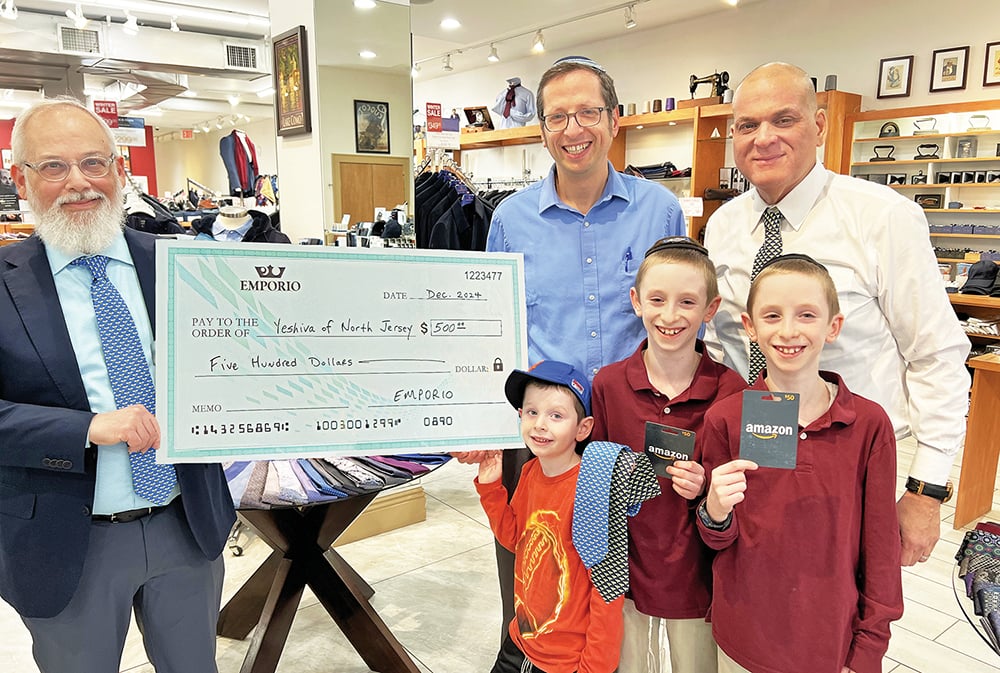Teaneck event intended to raise awareness and funds.
Under the watchful direction of Chief Rabbi Moshe Azman, the Mitzvah for Ukraine campaign comes to Teaneck this Sunday, July 23, in an effort to raise awareness of the ongoing situation in the war-torn country, as well as needed funding. Open to the community at large, the main event is set to take place at 10:15 a.m. at Keter Torah.
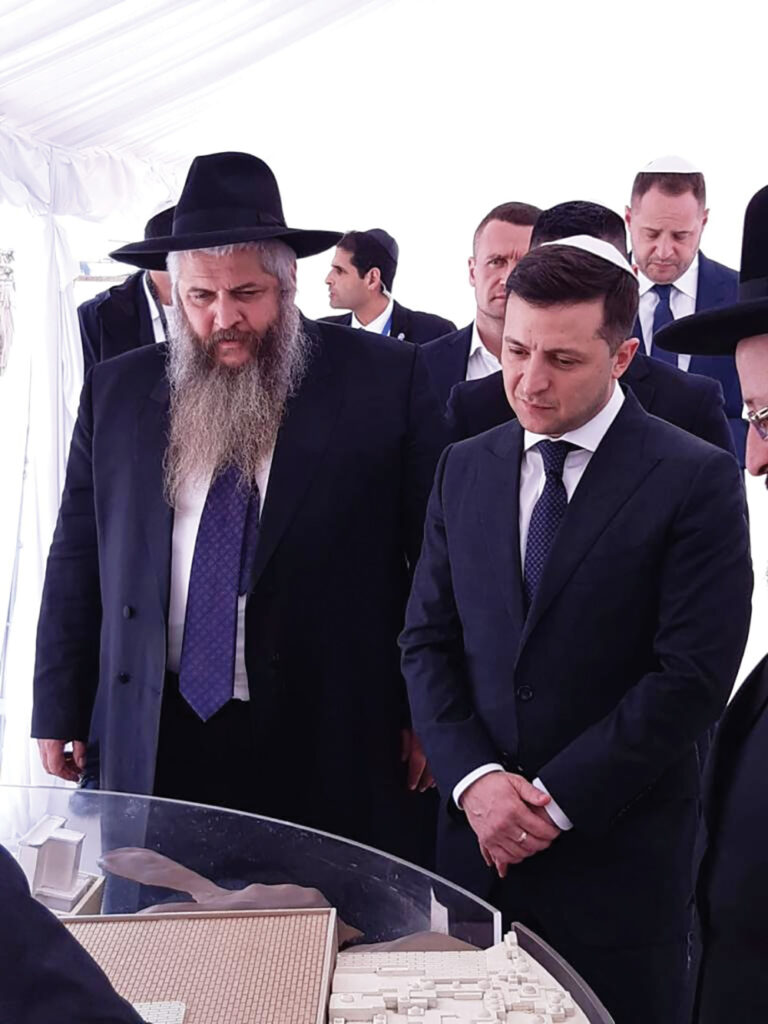
Mitzvah for Ukraine is in the process of establishing a U.S. board of directors. While the board will focus on fundraising, the organization’s leadership plans to install a finance committee composed of American business professionals who will oversee all financial activities. They want to ensure transparency and accountability, and to furnish the North American donor base with the assurance that their philanthropic dollars are being used as intended.
A concern of most donors is how to be certain that the funds they give will reach the intended destination and be used correctly. “At the start of the war [in February 2022], dozens of organizations were collecting funds to aid the people of Ukraine. Millions of dollars were raised from multiple causes by multiple organizations with no transparency whatsoever,” according to campaign leadership on the ground. “Mitzvah for Ukraine is working hard to be an open book, to share information with donors to help them feel comfortable that their support is indeed being used for the purposes the donor designates and not merely going into a black hole. The organization provides reports to their major donors, outlining exactly how their donations were spent and the overall impact on the organization due to these donors’ support.”

Considering the ongoing invasion by Russia and massive destruction, many wonder if there will be a time in the foreseeable future when it will be safe and make sense to begin building structures that support Jewish communal functions in Ukraine.
Based on ongoing conversations with the chief rabbi and others, no one in Ukraine is even thinking about the rebuilding process. “Mitzvah for Ukraine knows that crucial infrastructure will need to be built, but the current working assumption is that there is little reason to begin the process of reconstruction until the war ends. Unfortunately, the chances of a newly reconstructed building being hit by Russian missiles are so high that it makes little sense at this stage,” a Mitzvah for Ukraine strategist shared. He foresees that the rebuilding effort will take several years; and of course as long as the war continues, there is little reason to rebuild anything but significant infrastructure. But what he does see is an attitude of optimism that assumes Ukraine will emerge an independent state when all is said and done.
So the focus right now is on providing urgent and immediate essential services and provisions. To help ensure health care, Mitzvah for Ukraine has been working tirelessly to ensure that medical needs of the community are met, and it is a huge undertaking. The organization has helped distribute millions of dollars in medications, from antibiotics to insulin, heart medications and more. Getting to the hospitals has been a challenge for many, and Mitzvah for Ukraine implemented a system of visiting doctors who travel from town to town making house calls to provide care in cases where hospitalization can be mitigated, if possible.
One of the anonymous local supporters points out that the media has all but forgotten about the plight of the Ukrainian people. Unfortunately, the war goes on each day, making life profoundly challenging for all of the people of Ukraine, including of course, the Jewish community. And unfortunately, but not surprisingly, one of the major challenges that has emerged in recent months is the sharp rise in antisemitism across the country. The Jewish community is, once again, being used as a scapegoat for the Russian invasion. Rabbi Azman has been working closely with Ukrainian officials to combat this growing challenge.
“I was elected chief rabbi in 2005,” Rabbi Azman noted. “In this capacity I have been the liaison between the [Ukrainian] government and the Jewish community, and our focus has been to strengthen Jewish community life in Ukraine. After the fall of the Soviet Union there was much work to be done to reestablish Jewish community infrastructure. We established a Jewish school system, kashrut and chevra kadisha to service the needs of the community, and [we] support many communities in Ukraine in doing so.”
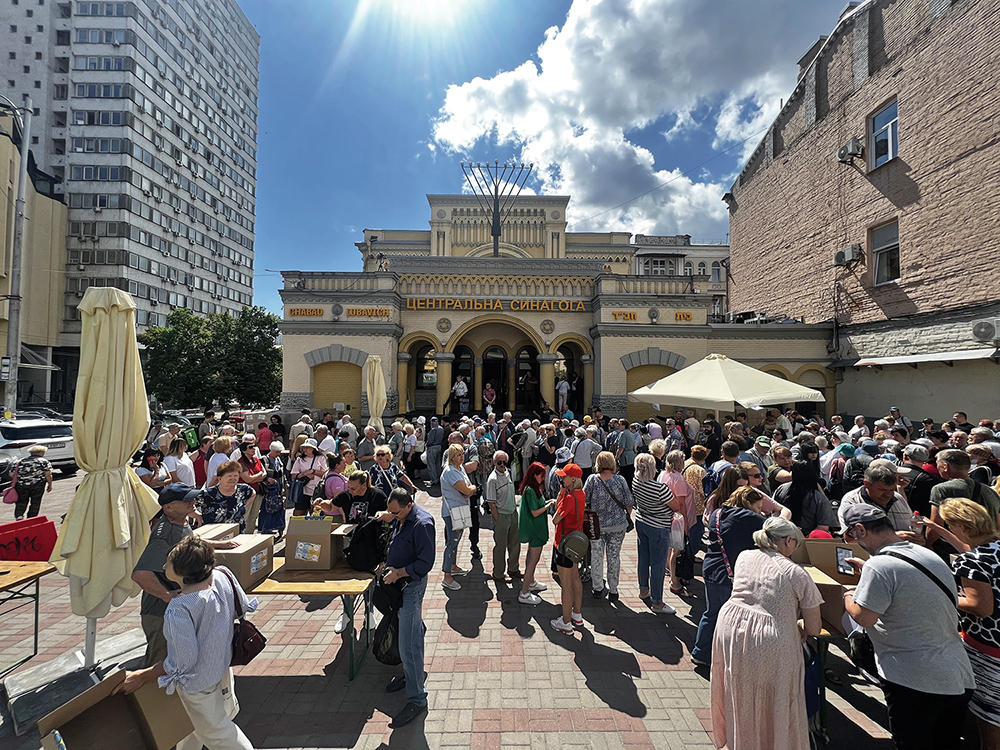
Rabbi Azman observed that Jews have a long history in Ukraine. In addition to the Jews who live there, there is a regular flow of Jews coming to visit, most notably the popular pilgrimage to Uman on Rosh Hashana. However, there are issues that arise vis-a-vis the government that require resolution.
“We have also worked on strengthening the relationship between Ukraine and Israel,” Rabbi Azman said. “I am proud to have led several delegations of senior Ukrainian leaders to Israel, and have welcomed senior Israeli delegations to Ukraine to improve ties between the two countries.”
Rabbi Azman explained some of the major issues facing the Jewish community in Ukraine. “The war has created numerous difficulties. Funding is a major issue. Prior to the war Ukraine was largely self-sufficient and supported by local Jewish philanthropists. This is no longer the case, as most businesses and businessmen have been terribly impacted financially by the war. Tens of thousands of people rely on us [now] for humanitarian aid and support, and funding this has been a real challenge.”
Another major challenge is lack of local leadership. There is a severe shortage of rabbis and educators. There were many rabbonim and lay leaders serving various communities in Ukraine prior to the war. Many have now left, and this has created a large vacuum for the Jews who remain in Ukraine.
“Lastly, the war brings with it much uncertainty, which makes it difficult to see what the future holds,” Rabbi Azman observed. “We must continue to build and rebuild to keep Jewish life alive in Ukraine.”
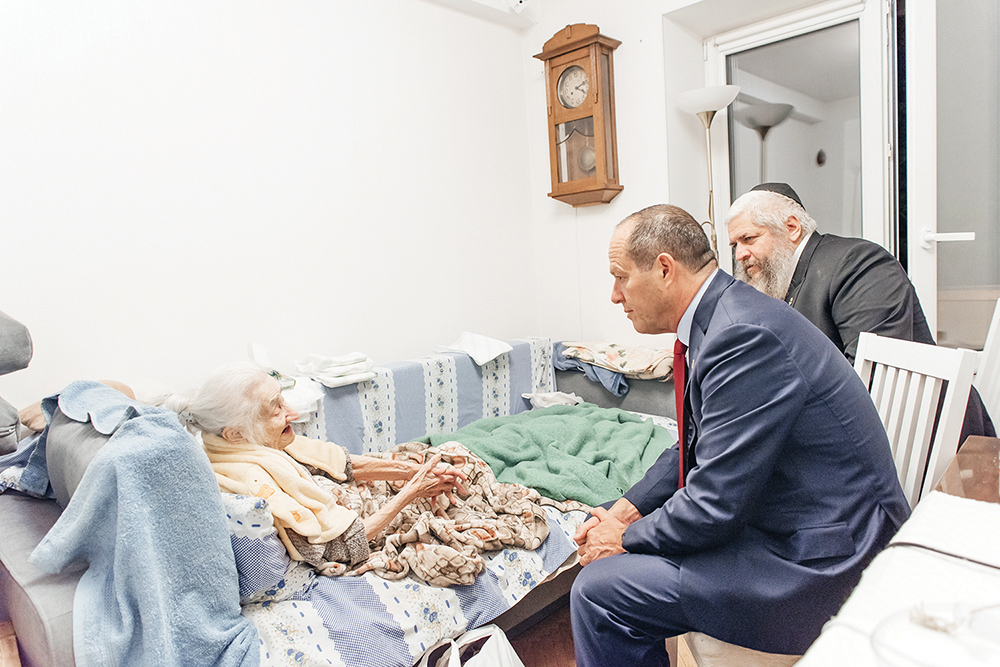
Asked what is needed most urgently, the chief rabbi responded: “First of all, our focus is to survive and restore a semblance of normalcy to Jewish life that existed before the war. For many people, surviving means finding food, and in most practical terms we provide food for thousands of Jewish families. We also need to urgently build bomb shelters so that schools can reopen. It’s been too long since the children have had in-person schooling. For the future of our children, we need to do everything possible to provide them with nurturing Jewish education.”
To fulfill these educational objectives, he said, they also seek to recruit Jewish educators and rabbis to provide much-needed spiritual support to different Jewish communities in desperate need.
While understandably any long-range plans are on hold, meeting the current needs are an ongoing and enormous undertaking on a daily basis.
“We are staying strong and holding out,” Rabbi Azman said. “We have taken on a strong humanitarian role, and are in touch with local governments and hospitals across Ukraine in support of our community. One of the ways we have adapted to the war is by creating a Jewish chaplaincy position in the military to service the many Jewish soldiers.
“A large goal of ours is to strengthen ties between Ukrainian Jewish communities and Jewish communities around the world so that we should be part of the global conversation. We are all part of Am Yisrael, and we need to strengthen this connection on an institutional, religious and humanitarian level. We are also doing this on a government level, strengthening the ties between Ukrainian government officials and the Jewish community in Ukraine and around the world.
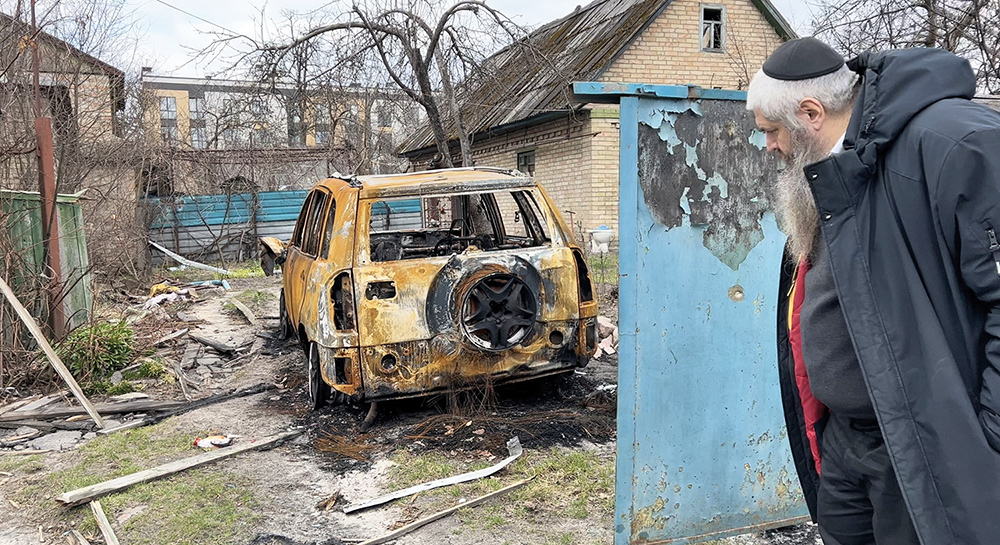
“The reality is that there are still approximately 100,000 Jewish brothers and sisters in Ukraine, living under very difficult conditions. We need to ensure their survival, and the survival of Jewish life. Once we survive this war, we will surely get back on our own feet, to grow and thrive just like we were for the past 30 years.”
All are invited to join this vital campaign by coming to meet Rabbi Azman in person, this Sunday at Keter Torah at 10:15 a.m. To learn more about Mitzvah for Ukraine or to donate much-needed funds, please visit the website: mitzvahforukraine.org/


